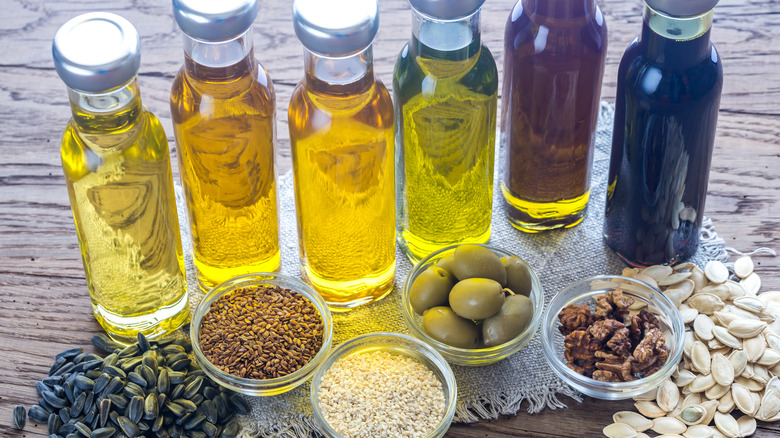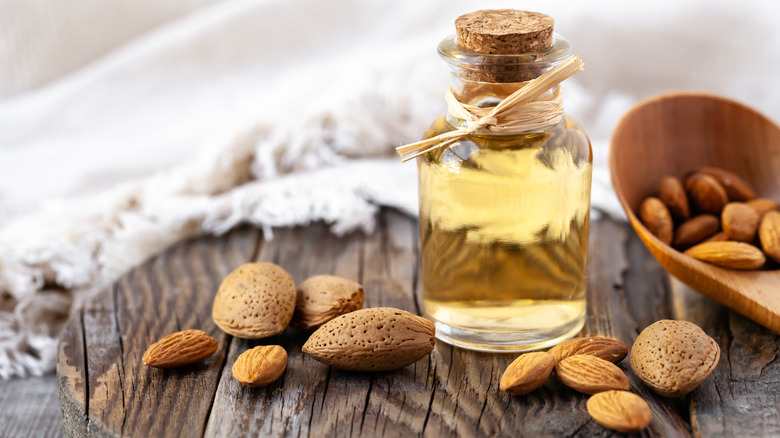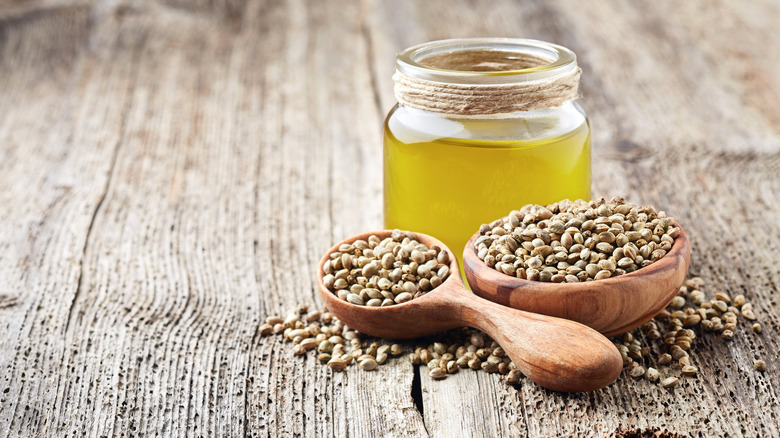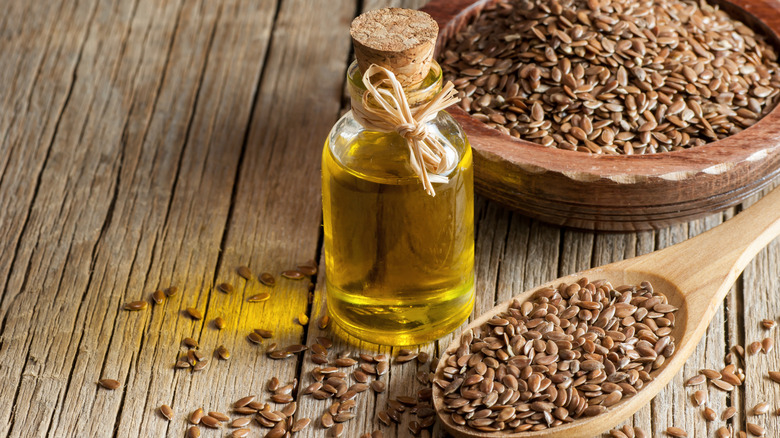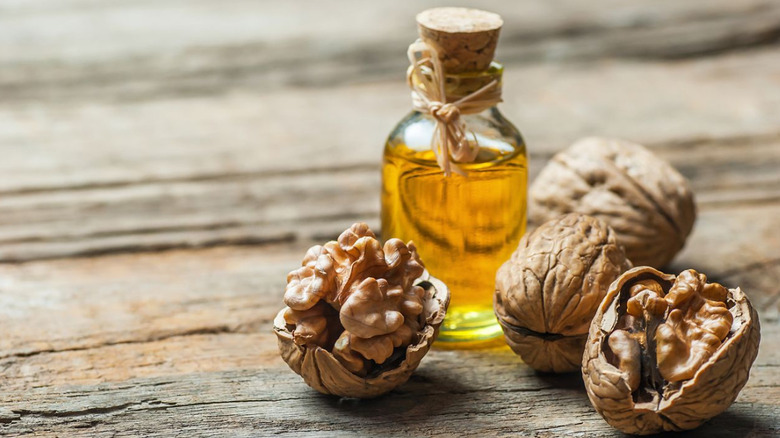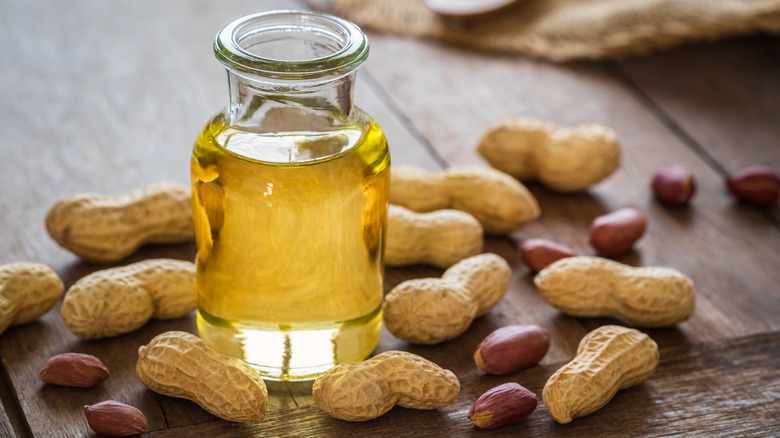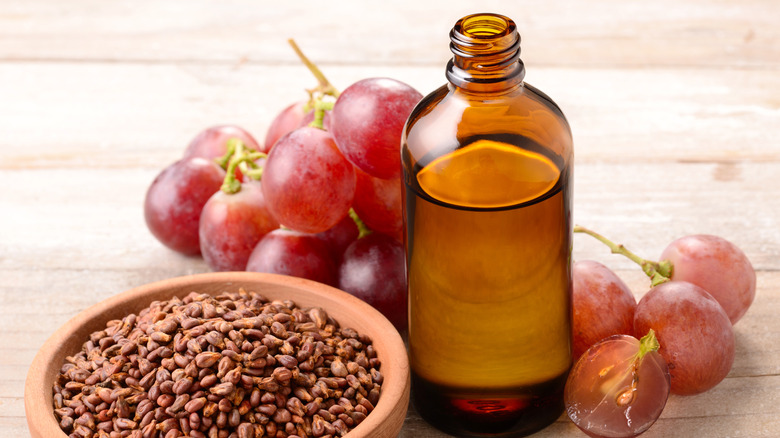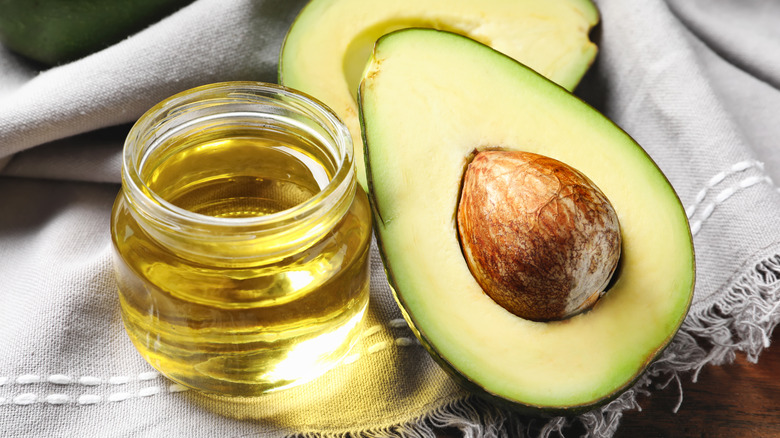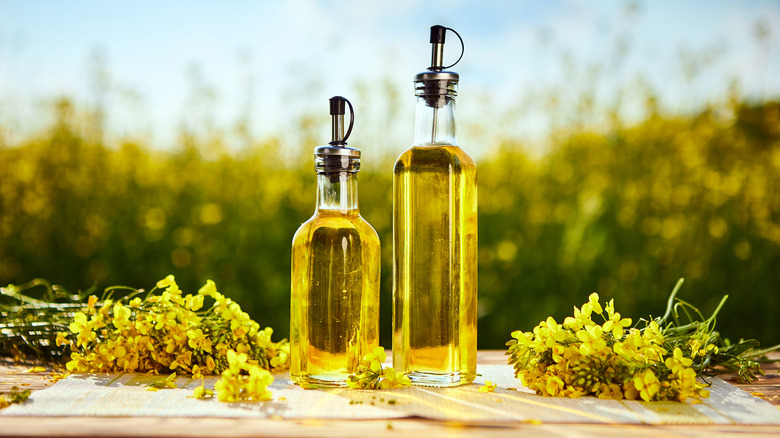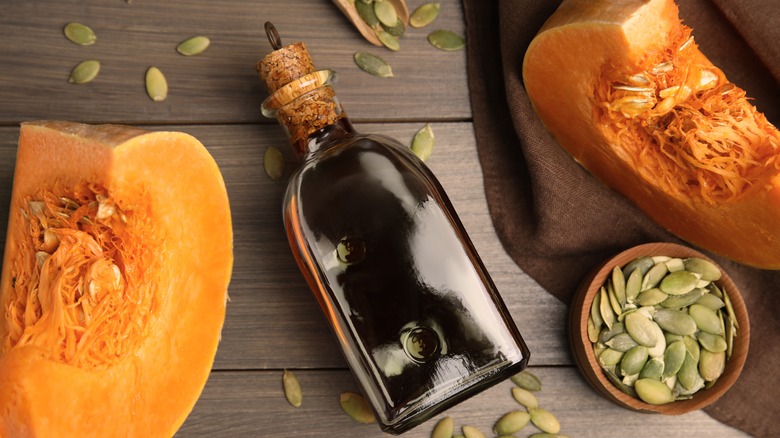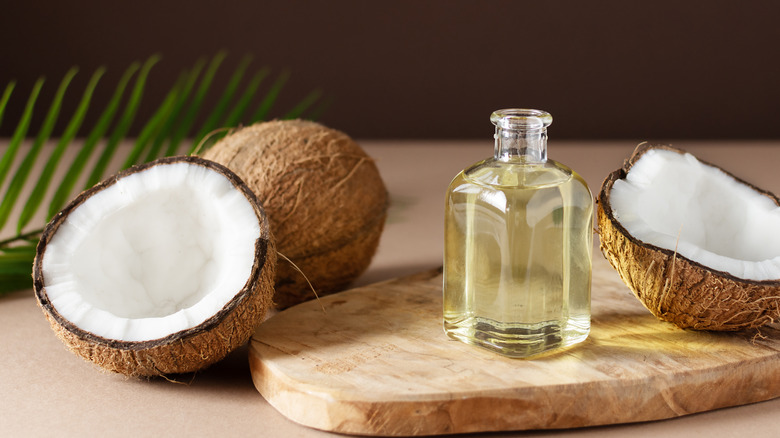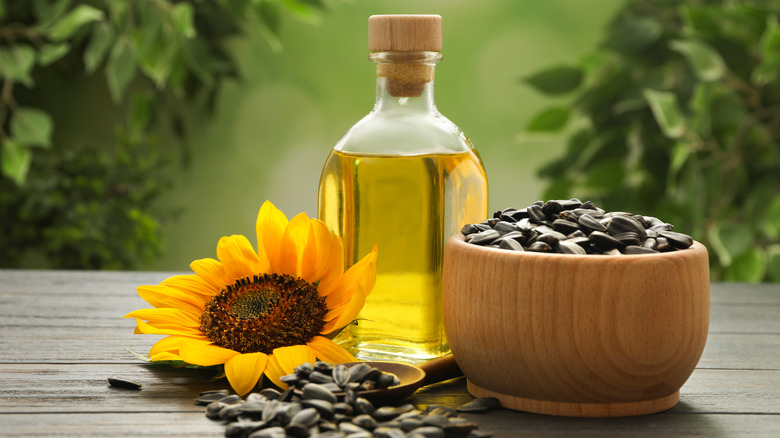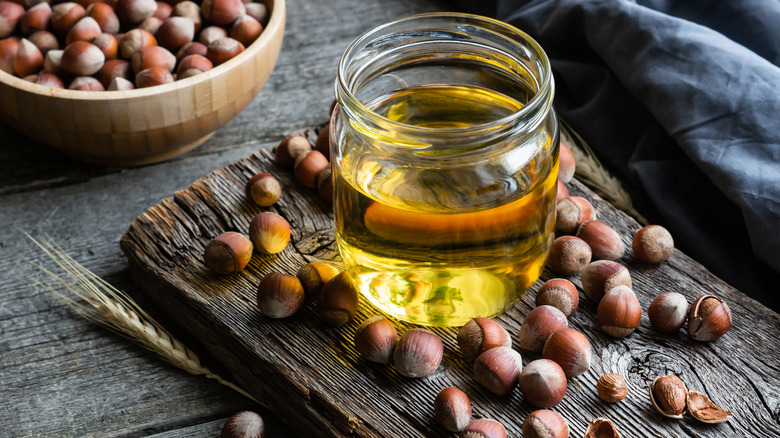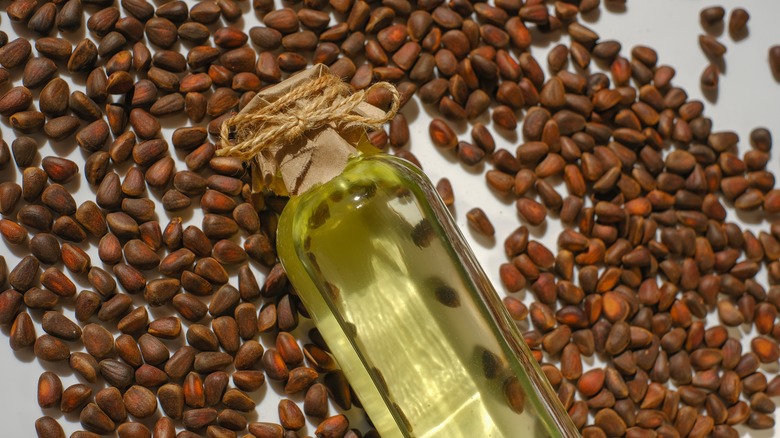13 Olive Oil Alternatives You Should Consider
A few drops of premium olive oil can turn the simplest dishes into a culinary masterpiece — the smooth, buttery texture caresses your palate while the earthy, grassy notes dance across your tongue, inviting you to savor every drop.
While no one will argue it's one of the finest oils for salads, pasta, bread, and everything in between, olive oil's delectable aroma can sometimes be overpowering. In this case, you might be searching for a decent substitute. The good news? They are aplenty.
With each oil possessing distinct properties, it is essential to select the right one for the task. Not only do oils enhance the flavor and performance of your dishes, but they can also provide a wealth of health benefits. While some fats are perfect for high-temperature cooking methods like deep-frying and sautéing, others excel in dressings and marinades. We've covered you with the best olive oil alternatives, so the next time you're looking for an oil that matches your recipe, you know what to use.
Try almond oil for a sweeter finish
Almond trees originated in the Middle East before coming to the United States in the 1840s. With some selective breeding, the potentially harmful wild varieties were transformed into sweet almond trees. Today, the fruits of this tree produce a flavorful oil, perfect for culinary creativity.
Almond oil is highly versatile and can add a rich, nutty flavor to a variety of dishes. Its sweetness gives a subtle touch to your dressings and marinades while enriching your cakes and pastries with a light almond aroma. When cooking with almond oil, keeping an eye on the heat is essential. If you're using virgin oil, it's best to avoid high temperatures as it can quickly burn and lose its nutritional benefits. Refined almond oil, however, can tolerate heat up to 420 degrees Fahrenheit, making it perfect for sautéed dishes or gentle frying.
Packed with essential nutrients like vitamin E, magnesium, phosphorus, and copper (per Healthline), almond oil is a true superfood for your body. Almond oil comes in two varieties: pure virgin and refined. Pure virgin almond oil is extracted with minimal heat to preserve its nutritional properties, making it the clear winner in terms of health benefits over refined, more budget-friendly almond oil.
Add nutritional density to your food with hemp oil
Hempseed oil, extracted from cannabis seeds, is a highly nutritious oil overlooked mainly due to Cannabis prohibition. Despite this, it is a nutritional powerhouse with all essential amino and fatty acids and the optimal balance of a 3:1 ratio of Omega-6 to Omega-3 (via AOCS). What sets it apart from other seed oils is the presence of gamma-linolenic acid (GLA) that helps fight cancer and inflammation, making it an even more valuable addition to your kitchen repertoire.
Good-quality cold-pressed hempseed oil has a nutty flavor similar to walnuts and sunflower seeds. When cooked, it develops a beautiful umami richness. Just be sure not to exceed its smoking point of 330 degrees Fahrenheit when heating it, as prolonged exposure to high temperatures can make it toxic. Gentle stir-fries are where hemp oil's nutty flavor can shine. There are more ways to enjoy hempseed oil without cooking it to oblivion: Drizzle it over your salad bowls or cold soups for a healthy twist, or blend it into your smoothies and shakes for a nutrient-packed boost.
Unleash the benefits of flaxseed oil
Flaxseed has been a staple crop since the beginning of civilization, earning the Latin name Linum usitatissimum, meaning "very useful." Today, the oil derived from this mighty seed is a popular ingredient for those seeking functional foods.
Flaxseed oil, with its high content of ALA (linolenic acid or omega-3 fatty acid), is a nutritious and flavorful addition to your cooking arsenal (per Healthline). Its nutty and slightly earthy flavor is perfect for salad dressings and sweet dessert toppings. It also adds a delicious touch to savory meat dishes. However, with a lower smoke point of around 225 degrees Fahrenheit, the flaxseed oil is unsuitable for high-heat cooking or roasting. So, use it to add flavor to your dishes rather than as a cooking fat.
Moreover, flaxseed has significant health benefits, such as reducing heart-related problems, diabetes, or neurological disorders. While according to the Journal of Food Science and Technology, it doesn't contain readily available DHA or EPA (a fatty acid found in coldwater fish), the flaxseed oil is a popular choice over fish oil due to its sustainable origin.
Explore the richness of walnut oil
Walnut oil, the golden elixir extracted from the nut of the Juglans regia tree, has only recently appeared in the wellness space. It's a nutrient-dense oil (via Healthline) abundant in unsaturated fatty acids, vitamin E, and phytosterols. Walnut oil is sought-after oil among health-conscious people for its nutraceutical properties (providing more than essential nutrients) and rich, delectable flavor.
Walnut oil can be obtained through refining or cold-pressing methods. While refined walnut oil has a neutral taste that is not particularly exciting in cooking, unrefined (raw) walnut oil has a distinct charred nuttiness making it an incredibly fantastic addition to dressings or marinades. This honey-hued oil has a slightly woody aroma, making it a great finishing condiment for grilled vegetables like carrots or squash. It also tastes delicious when drizzled over leafy greens. However, when heated, it loses its flavor, making it an expensive oil to cook with.
Peanut oil -- the real kitchen workhorse
Peanuts have been enjoyed for centuries in South America, but large-scale peanut oil extraction began when introduced to Europe in the 1500s. Since then, peanut oil has become one of the best oils for deep frying (particularly in commercial frying) due to its high smoke point and resistance to oxidation.
There are three main types of peanut oil, each with a unique flavor and culinary use. Semi-refined peanut oil retains a distinct nutty flavor, making it ideal for stir-frying and adding to Asian-inspired dishes. Refined peanut oil has a mild nutty taste and a high smoke point of 445 degrees Fahrenheit, making it perfect for frying chips and baking crispy treats. Virgin peanut oil is excellent for dips and salad dressings. And for adventurous dessert enthusiasts, roasted peanut oil adds caramel-like nuttiness to chocolate desserts.
According to WebMD, peanuts are a trusted source of vitamin E, an essential antioxidant that supports the immune system and maintains healthy blood cells. However, you must choose cold-pressed peanut oil to reap those benefits.
Discover the delicate flavor and versatility of grapeseed oil
Grapeseed oil has been around in Europe for quite some time. It's been produced mainly in Germany, France, and Italy since 1930 and has gained popularity as a culinary oil. Although it has several benefits, grapeseed oil is often overlooked in favor of olive oil.
Packed with hydrophilic and lipophilic constituents, such as phenolic compounds, vitamin E, unsaturated fatty acids, and phytosterols (per Journal of Nutrition and Metabolic Insights), grapeseed oil is a top choice for foodies and health enthusiasts alike. The high antioxidant activity and antitumoral properties of vitamin E give this functional food a natural edge, making it an excellent oil for enhancing your health.
Grapeseed oil has a neat taste that allows the natural flavors of your food to come through better. Try it in classic vinaigrettes or dressings for a clean and bright finish. Unlike traditional olive oil, grapeseed oil can withstand high temperatures, making it ideal for pan frying or baking. And with its high smoke point, you won't have to worry about releasing harmful toxins or burning your food. Give it a try, swap out your usual oil, and explore the possibilities of grapeseed oil in your kitchen.
Enjoy nutritious creaminess of avocado oil in your cooking
Avocado is a delicious fatty fruit that has been stealing hearts for decades. But did you know that it also has a liquid version? Avocado oil, extracted from this South American superfood's flesh, is relatively new in the culinary world. Over the last few decades, it has steadily gained traction as a nutritious oil for everyday cooking.
Avocado oil boasts a higher smoke point (491 degrees Fahrenheit) than many other cooking oils, bringing a rich buttery flavor to dishes. It's addictive taste and bright green color make it a go-to ingredient for sautéeing, stir-fries, and Asian-inspired dishes. Whisk it in your batter for a moist and flavorful twist if you make a cake. And don't forget the obvious — salads! You could throw together a wholesome Paleo pasta salad with avocado oil vinaigrette or opt for something less fancy; use it as a finishing oil on your greens.
Few healthy oils can match the exceptional qualities of avocado oil. According to a 2005 study published in The Journal of Nutrition, adding avocado oil to your salads can increase their nutritional value significantly as it aids the body's absorption of carotenoids found in vegetables such as lettuce, kale, and carrots. Although avocado oil is similar to olive oil (via WebMD) in terms of calories and fat content, it boasts higher levels of monounsaturated fat, omega fatty acids, and skin-nourishing vitamin E, making it a kitchen staple for health enthusiasts.
Canola -- the all-purpose cooking oil
Canola oil is the answer for those seeking a cooking oil that is versatile and upfront about its ingredients. Derived from the rapeseed plant, it offers a comparable flavor, color, and smoke point to vegetable oil, which can sometimes be a mysterious blend of various oils (Not what you'd want to put in your body).
With its delicate flavor, remarkable heat tolerance, and silky smoothness, canola oil is a swift kitchen all-rounder. This cooking oil can do everything, from frying and baking to sautéing and grilling, and it's an excellent choice for making salad dressings and marinades – a basic vinaigrette, for instance. Canola oil is also ideal for creating delicious sauces, such as creamy aioli. You can even use it to substitute solid fats like butter in recipes.
According to WebMD, incorporating canola oil into your everyday cooking is a heart-healthy choice with only 7% saturated fat, compared to 14% olive oil. It's also rich in omega-3 and monounsaturated fats and contains phytosterols that help lower cholesterol absorption, making it a simple yet effective way to elevate your daily diet toward a healthier lifestyle.
Elevate your dishes with the distinctive pumpkin oil
With its deep emerald-green color and nutty flavor, pumpkin seed oil can add a distinctive touch to many cuisines. While it is a versatile and flavorful ingredient, it's essential to remember that it burns faster than other oils. Overheating can turn the oil bitter and rob it of its nutritional properties. Instead, try drizzling it on salads and soups or using it in place of olive oil in vinaigrettes. Likewise, add a few drops of pumpkin seed oil to roasted vegetables or pour some into your green smoothie for delicious nutty goodness.
Pumpkin seed oil offers an impressive array of health benefits. With heart-healthy fats and valuable nutrients, 1 tablespoon of this oil packs a punch. According to Healthline, it contains 14 grams of fat, predominantly the good stuff — polyunsaturated and monounsaturated fatty acids. Moreover, linoleic acid in pumpkin seed oil can be beneficial in maintaining a healthy heart and regulating blood sugar levels.
Pumpkins are now a part of cuisines all around the globe, but their seed oil is nowhere more prevalent than in the Styria region in Austria. Styrian pumpkin seed oil is considered some of the best in the world. Next time you come across it in your health food store, grab it — you won't regret it.
Add a taste of tropics with coconut oil
Coconut oil, derived from the tropical coconut palm tree, is known for its high saturated fat content of 86%, which gives it excellent stability and resistance to oxidation. Its nutty-sweet flavor and solid structure makes it a versatile and beloved ingredient in many recipes. While some hail it as a superfood and others criticize it as a source of unhealthy saturated fats, coconut oil is an excellent choice in moderation.
Even though olive oil is often considered one of the healthiest fat sources (via Master Class), coconut oil has its own tricks. Its medium-chain triglycerides (MCTs) provide a speedy energy boost that won't go straight to your waistline. On the other hand, lauric acid (the primary fatty acid in coconut oil) may take a bit longer to metabolize than MCTs, but it boasts antimicrobial properties that can help protect your body.
Before you start cooking up a storm in your kitchen, knowing your coconut oil is essential. Virgin coconut oil is slightly more sensitive to heat, ideal for low-heat baking and sautéing, but if you're looking to fry some bang bang cauliflower, refined coconut oil is your new best friend. And here's the good news — you can easily swap other oils and butter for coconut oil without hesitation.
Sunflower oil is a versatile kitchen staple
Sunflowers have been a staple in the American Southwest for centuries, providing Native Americans with precious oil. Today, sunflower oil is a beloved ingredient in Eastern European cuisine, known for its versatility in cooking.
You may come across two types of sunflower oil: refined and unrefined. Cold-pressed sunflower oil may be more difficult to find in the United States. However, if you're lucky to see it, try using it in vinaigrettes for a more neutral flavor than olive oil. On the other hand, refined sunflower oil has a relatively high smoke point, making it a reliable choice for high-heat cooking, such as frying and sautéing. You can whip neutral-tasting homemade mayo with refined sunflower oil or try shallow-frying your tempura.
Sunflower is a universal kitchen oil rich in essential fatty acids like omega-6 and Vitamin E (via Healthline). However, its health benefits decrease when heated, as its antioxidants break down faster than in olive oil. Moreover, sunflower oil is less heat-resistant, making it more likely to release toxic aldehydes when exposed to high heat. These compounds have been linked to heart disease and Alzheimer's. The best way to avoid that is to use an alternative oil for deep-frying.
Add a gourmet touch to your dishes with hazelnut oil
Humans have enjoyed hazelnuts' rich flavor and nutritional benefits for thousands of years. Recent archaeological discoveries have shown that our Stone Age ancestors were already munching on these tasty little nuts more than 8,000 years ago. Today, we can savor the incredible flavor of hazelnut oil, crafted from these precious nuts' roasted and pressed kernels.
Hazelnuts produce gourmet oil that can add a unique depth to savory and sweet dishes. Its rich taste and lower saturated fat content make it a healthier olive oil substitute. Add a luxurious finish to a salad or as a secret ingredient in your favorite sauce. Hazelnut oil is excellent cooking oil for grilled meats or vegetables. For those with a sweet tooth, the oil pairs perfectly with berries or chocolate and adds a delicious nuttiness to your desserts.
Hazelnuts are a nutritionally-rich superfood, packed with essential vitamins and minerals like copper, manganese, and vitamin E, along with healthy omega-6 and omega-9 fatty acids (per WebMD). The high antioxidant content and abundance of healthy fats in hazelnuts can also reduce cholesterol levels and stabilize blood pressure. If you haven't tried it, boost yourself with this truly unique and rich oil.
Pine nut oil can become your new secret ingredient
Pine nuts have been an essential food source since ancient times. These small but mighty seeds are packed with nutrients and offer a unique flavor that can enhance any dish. The oil extracted from these seeds is just as rare and delicious, with some of the best varieties hailing from the Italian and Siberian regions.
Extra virgin pine nut oil is a versatile addition to any kitchen. Its buttery flavor profile enhances a range of dishes, from roasted vegetables to grilled meats. It can also be a flavorful and healthy substitute for traditional oils in salad dressings and marinades. Dip crusty bread in pine nut oil seasoned with garlic and herbs for a simple yet delicious snack. Try pouring it over a green salad with sliced pears and goat cheese, or make a tangy vinaigrette with lemon juice and honey.
If you're searching for a way to elevate your cooking game and improve your health at the same time, look no further than pine nut oil. Pine nut oil is packed with pinolenic acid (PNLA), which has powerful anti-inflammatory properties and boosts your immune system. Incorporating this premium oil into your diet can help control appetite and reduce body fat.
